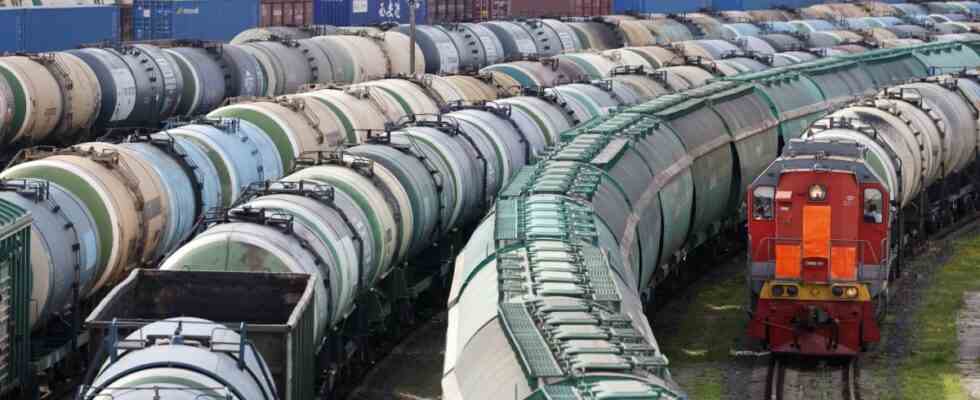On July 1, shortly after the big round of summits between the EU and NATO, there was great hope that the Commission could bring one of the most dangerous time bombs in dealings with Russia under control. But the defusing squad had to withdraw at the weekend without having achieved anything. The second stage of the sanctions regime against Russia came into force on Sunday. Cement and alcohol are now also affected. And the Russian exclave of Kaliningrad, which lies like an island between Poland and Lithuania on the Baltic Sea and is supplied via a corridor from Belarus – also with cement and alcohol – is still affected.
A quiet but stubborn dispute has broken out between the EU Commission and the government of Lithuania as to whether the sanctions decisions against Russia also affect goods that are brought from Russia to Russia, i.e. from the Russian heartland to the exclave. Because the land connection runs through EU territory, Lithuania asked for instructions in June as to whether it should also implement the sanctions regime on the transit route. A yes came from Brussels: the transit route was also affected. However, the highly political decision had not reached the highest level of the commission, and it is unclear whether hawks in the commission wanted to establish facts in consultation with the Lithuanian government. Moscow promptly responded with violent attacks, and the head of the commission, Ursula von der Leyen, tried to withdraw face-saving for all sides. But this operation has not been successful so far.
According to SZ information, Lithuania still insists that the sanctions are also applied to the transit route – legally a gray area, because the transit agreement of 2002 and also the spirit of the sanctions rules (imports and exports from Russia) speak against goods traffic from Russia to hinder Russia. But: In Lithuania, the issue of sanctions has long since become a threatening political issue. In public, any consideration for Russia is greeted with harsh criticism, it is said that abandoning the sanctions regime would be tantamount to capitulation to Russian interests.
Irrespective of these problems, the Commission prepared an instruction that would have allowed goods to be traded in the quantities that had been customary up until then. The goal was publication well before July 10th and thus the next escalation level. However, concerns remain that Russia could expand Kaliningrad, its only ice-free port in the Baltic Sea, for exports and would have to bring large quantities of steel and cement to the exclave in order to do so. These goods are now on the sanctions list.
termination of the negotiations
Negotiations between the Commission and Lithuania dragged on until the weekend and, according to SZ information, were initially broken off without success. Lithuania is said to have repeatedly made it clear that withdrawing the original sanctions directive would lead to a rupture in the centre-right government – a triumph for Russia that must not be allowed to happen. The commission did not want to comment on the status on Sunday, but emphasized that talks were still going on. A spokesman referred to a June 30 statement that said controls must be “focused, proportionate and effective.”
The question now is whether this is a theoretical problem or whether the sanctions are actually being applied. After rampant abuse in the days after the first level of sanctions came into effect, things have gone quiet in Russia. Complaints about stopped deliveries will not be raised. The governor of Kaliningrad, Anton Alikhanov, even said in an interview that his city’s supply was not at risk and that it was a matter of a “technical error” on the part of the commission. Most recently, the Kremlin spokesman Dmitry Peskov was heard. The Russian agency Interfax quoted him on Thursday as saying that talks were being held on all channels. “Obviously we hope for the best, but prepare for the worst.” That’s been Peskow’s standard rate for weeks. However, it is uncertain how long Russia will retain its pragmatic view, when hawks like former President Dmitry Medvedev will speak again, and above all whether Moscow will start a test with a large shipment of cement.
The Commission finds itself in a quandary because it cannot show any dissent with one of the most prominent members on this sensitive issue vis-à-vis Russia. Of course, other states have long been alarmed. Chancellor Olaf Scholz has also positioned himself clearly. He said that while the Commission is responsible for the rules, they must be set “in the light of the fact that this is about traffic between two parts of Russia”.

